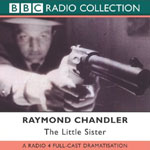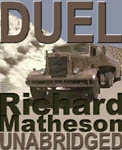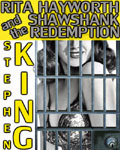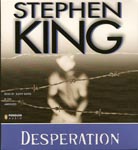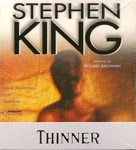
 The SFFaudio Podcast #049 – Jesse and Scott talk about recent arrivals, new releases, audiobooks, podcasts and plenty more!
The SFFaudio Podcast #049 – Jesse and Scott talk about recent arrivals, new releases, audiobooks, podcasts and plenty more!
Talked about on today’s show:
SFFaudio.com is 7 years old, So I Married An Axe Murder, San Fransisco, California, Alcatraz, recent arrivals, Brilliance Audio, military SF, Fearless: The Lost Fleet Book 2 by Jack Campbell, space opera, Gene Roddenberry‘s Andromeda, Buck Rogers, Live Free or Die: book 1 in the Troy Rising series by John Ringo, Paperback Digital, Cally’s War by John Ringo and Julie Cochrane |READ OUR REVIEW|, John Ringo can give his books away and sell books too, Time’s Eye: A Time Odyssey Book 1 by Arthur C. Clarke and Stephen Baxter, it’s not a sequel it’s an “othrquel“, time is orthogonal to space (in relativity theory), Childhood’s End by Arthur C. Clarke, benevolent aliens, malevolent aliens, H.P. Lovecraft, The Eternal Wall by Raymond Z. Gallun, LibriVox, Gregg Margarite, time travel, Blackstone Audio, Identity Theft by Robert J. Sawyer, Mars, consciousness uploading/downloading, Treason by Orson Scott Card, A Planet Called Treason by Orson Scott Card, Stefan Rudnicki, Spider Robinson, Melancholy Elephants by Spider Robinson |READ OUR REVIEW|, copyright, copyfight, the philosophy of art, The Graveyard Book |READ OUR REVIEW|, The Jungle Book by Rudyard Kipling, Harry Potter, The Dark Is Rising, A Wizard Of Earthsea by Ursula K. Le Guin, ripping off Heinlein is legit when you are Spider Robinson, Friday by Robert A. Heinlein, new releases, Wonder Audio, The Men Return & Worlds Of Origin by Jack Vance, Brilliance Audio, The Songs Of Dying Earth: Stories In Honor Of Jack Vance, Gene Wolfe, The Book Of The New Sun by Gene Wolfe, David D. Levine, Tk’Tk’Tk’ by David D. Levine, The Moon Moth by Jack Vance |READ OUR REVIEW|, Suldrun’s Garden, The Green Pearl, Madouc by Jack Vance, Swimming Kangaroo Books, Need For Magic by Joseph Swope, BBC Audiobooks America, Great Classic Science Fiction: Eight Unabridged Stories, Forgotten Classics podcast talks James Gunn’s The Road To Science Fiction series, paperback book bags, A Game Of Thrones coming to HBO, A Game Of Thrones by George R.R. Martin |READ OUR REVIEW|, Roy Dotrice, John Lee, Shogun (the TV miniseries), FlashForward, Stephen King’s Storm Of The Century, 1408, Scott’s Pick Of The Week: Steve, The First by Matt Watts |READ OUR REVIEW|, @ the CBC store, radio drama, post apocalypse, humor, Canadia: 2056 |READ OUR REVIEW|, The Hitch-hiker’s Guide To The Galaxy, Jesse’s Pick Of The Week: The Chronicles Of Solomon Kane, Roy Thomas, Howard Chaykin, Robert E. Howard, The Iliad, Ralph Macchio, Red Shadows by Robert E. Howard, religion, Solomon Kane, The Punisher.
Posted by Jesse Willis






